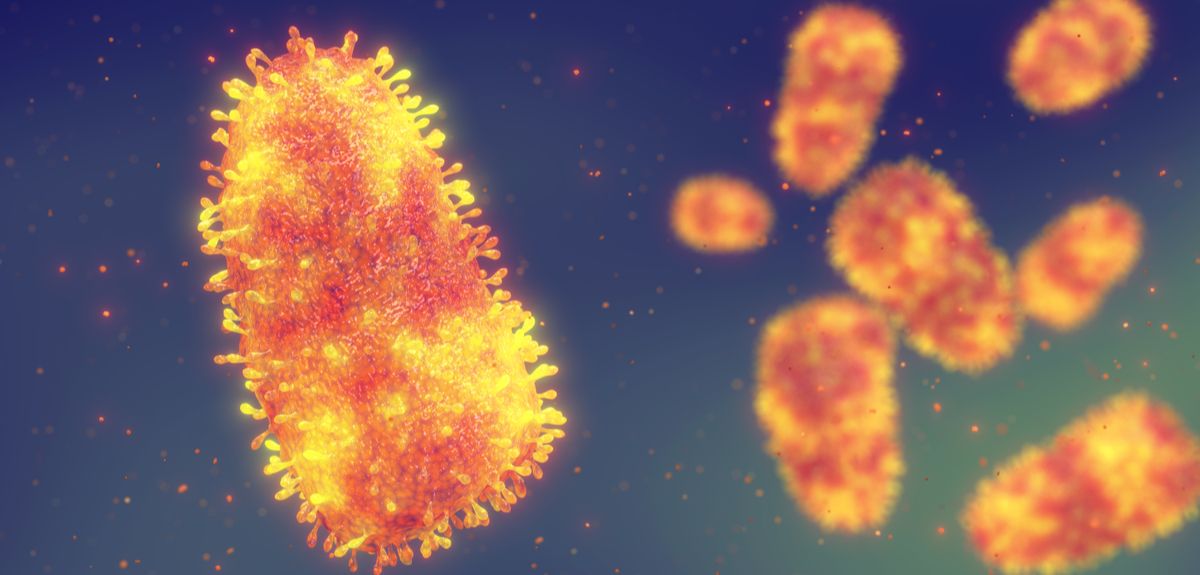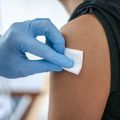
New rabies vaccine candidate demonstrates promising immune response and safety
Researchers from the University of Oxford have today reported new findings from a Phase 1 clinical trial studying the immune response and safety of their newly-developed single shot rabies vaccine, ChAdOx2 RabG - with promising results identified.
The RAB001 trial was conducted at the University and is the first time the novel rabies vaccine has been used in human volunteers. The aim of the study was to look at safety and measure immune responses from the vaccine by analysing levels of rabies neutralising antibodies – a powerful marker of successful rabies vaccination.
In their findings (published in The Lancet Microbe), the researchers reported that 12 volunteers were recruited into the study in total, with three receiving a low dose, three receiving a medium dose and six receiving a high dose of ChAdOx2 RabG. Strong immune responses against rabies were generated by the vaccine, with all volunteers who received a medium or high dose developing levels of rabies neutralising antibodies above the World Health Organisation protective threshold (0.5 International Units / ml) within two months.
No serious adverse events or safety concerns were reported during the trial. Expected levels of common short-lived vaccine side effects such as soreness at the injection area or feverishness were observed in volunteers, mainly in the medium- and higher-dose groups.
Additionally, the researchers assessed longer term immune responses. Six of the seven middle- and high-dose recipients who returned for an additional follow-up one year after vaccination maintained neutralising antibody levels above the protective threshold, demonstrating that the immune response from the vaccine persists over time.
Associate Professor Sandy Douglas, Chief Investigator of the trial at the Jenner Institute, University of Oxford, said:
‘We’re absolutely delighted with these early results – the vaccine has performed even better than we had expected. The problems with existing rabies vaccines are that they are expensive and require multiple doses. We’re very hopeful that expanded trials in countries affected by rabies will prove that this new vaccine could enable routine, affordable, single-dose vaccination against this devastating disease for people living in such areas.’
Dr Daniel Jenkin, Lead Clinical Research Fellow of the trial at the Jenner Institute, University of Oxford, said:
‘New rabies vaccines based on modern vaccine technologies could become important tools in preventing the tens of thousands of rabies deaths that occur annually. Our strong early clinical trial data with ChAdOx2 RabG supports further development of this approach.’
The ChAdOx2 RabG vaccine is based on the ChAdOx2 vector – a weakened version of a common cold virus (adenovirus) that has been genetically modified so that it is impossible for it to replicate in humans, and is similar to the technology used successfully in the Oxford-AstraZeneca COVID-19 vaccine.
Researchers hope the promising results from the RAB001 trial will support further development of the vaccine and allow larger clinical trials to take place in the future. A Phase Ib/II clinical trial to assess safety and immunogenicity in Tanzania is also currently ongoing and results of that trial are expected later this year, with full results due in late 2023.
 New research shows high temperatures affect sex ratios at birth
New research shows high temperatures affect sex ratios at birth
 COVID-19 vaccination during pregnancy offers new insight into preeclampsia prevention
COVID-19 vaccination during pregnancy offers new insight into preeclampsia prevention
 Expert Comment: Should the UK relax clean energy targets?
Expert Comment: Should the UK relax clean energy targets?
 Existing hospital analysers offer a low-cost method to screen for fake vaccines
Existing hospital analysers offer a low-cost method to screen for fake vaccines